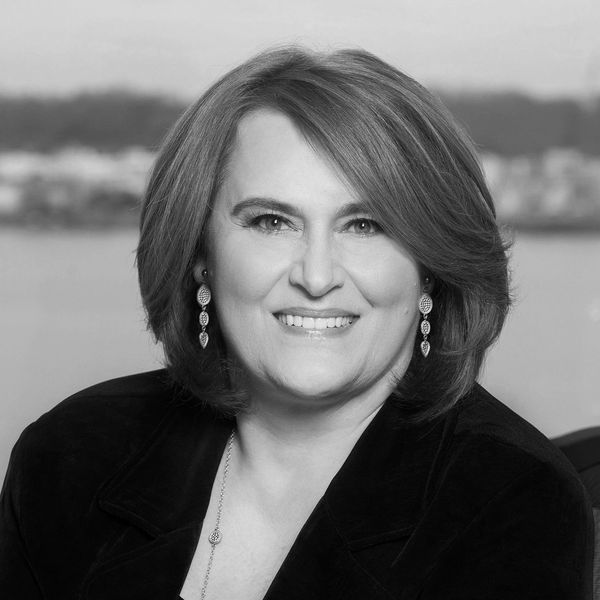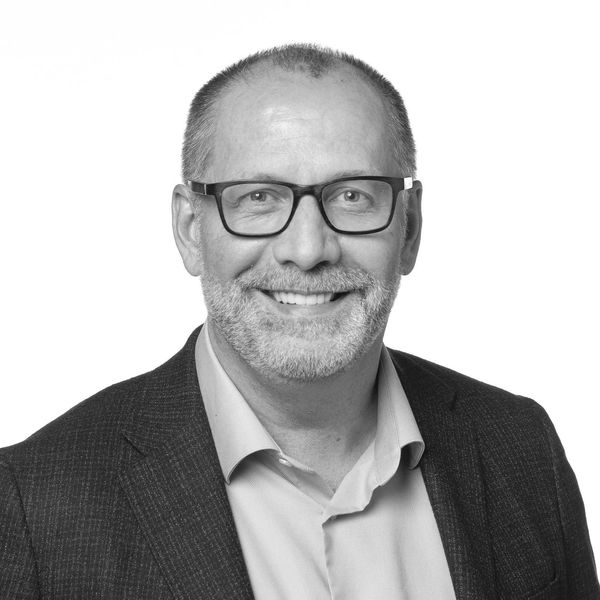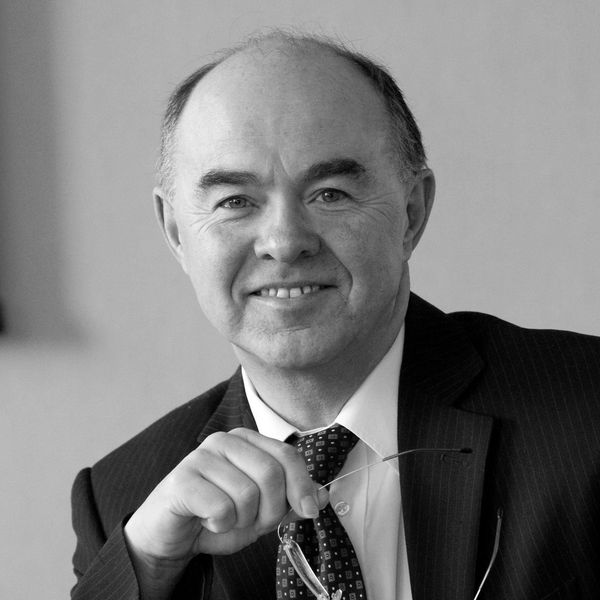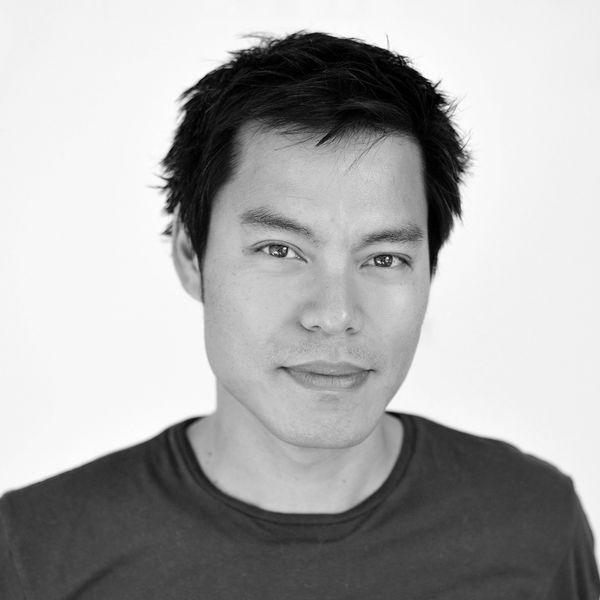Trending Now
We have updated our Privacy Policy and Terms of Use for Eurasia Group and its affiliates, including GZERO Media, to clarify the types of data we collect, how we collect it, how we use data and with whom we share data. By using our website you consent to our Terms and Conditions and Privacy Policy, including the transfer of your personal data to the United States from your country of residence, and our use of cookies described in our Cookie Policy.
{{ subpage.title }}
Three ways to look at Brazil’s fight with Elon Musk
What on Earth is going on in Brazil? The world’s richest man, Elon Musk, is locked in a high-profile, increasingly nasty clash with Latin America’s largest economy, which has recently banned Musk’s X platform.
There are strong feelings and spicy memes. The X boss has accused his main opponent, Brazilian Supreme Court Justice Alexandre de Moraes, of being “Voldemort” and “Darth Vader.” The dispute has even reached low-Earth orbit, ensnaring Musk’s Starlink satellites.
There are a few different ways to understand the spat – as a fight over speech, over sovereignty, or over egos. Each sheds light on a bigger issue in the increasingly fraught relationship between tech companies and national governments.
But first, the backstory.
For five years, Moraes has been investigating online disinformation and perceived online threats to Brazil’s democracy.
He has focused particular attention on accounts related, or sympathetic, to former President Jair Bolsonaro, the right-wing firebrand whose followers – whipped into a frenzy by (false) online allegations of vote rigging – ransacked Congress after he lost the 2022 election.
Moraes – whose prominent brow and perfectly bald pate do give him a bit of an Orlokian air, even if Voldemort is a stretch – has ordered raids on politicians’ homes, frozen their bank accounts, and even got Bolsonaro himself banned from politics for eight years.
His supporters say he’s fighting to protect democracy in an extremely online country that has a recent history of dictatorship. His critics say he’s playing loose with the law, overreaching, and pursuing an ideological agenda that suppresses free speech.
Enter Musk.
Not long ago, Moraes ordered X to suspend several popular accounts without naming them or explaining why. Musk, who now styles himself as a free speech defender (so long as he isn’t doing the defending in, say, India or Turkey, where he has complied with government demands to ban content), said the orders were illegal. He laid off a bunch of local staff rather than comply (while still leaving the service running).
Moraes, in turn, shut down X entirely in Brazil on the grounds that the company now lacked a local legal representative. As of a week ago, X no longer functions there. For X-ers in the rest of the world, the site has run extensive threads on what they say is Moraes’ overreach.
Ordinary Brazilians are split over the ban, but to be fair, X isn’t even among the top five social media apps in the country. (If you know Brazil, you know that if Moraes were to shut down, say, WhatsApp, there would either be a revolution or the country would simply evaporate in 24 hours.) Things could stay like this for a while.
So what’s this all about?
View one: It’s about speech! It’s no secret that governments around the world are grappling with the security and political stability implications of massive, unfiltered communications platforms where the velocity and reach of truth, lies, opinions, and cat memes is simply unprecedented.
“There’s a common thread of governments these days getting impatient with the platforms’ inability to self-police,” says Alexis Serfaty, a technology policy expert at Eurasia Group. “And they’re trying to act against a range of threats that they see, from public safety, to public health, and even to political stability.”
This explains X’s simultaneous legal battle with the EU over content moderation, as well as France’s charges against Telegram, which it accuses of prioritizing free speech over public safety and respect for local laws.
For a democracy, Brazil has especially expansive rules on what the government can try to root out – critics point out that the country now joins Russia, China, and Iran on the list of places where X is banned.
And if companies want to be there, they have to follow those rules, sure. But in the broader perspective, is the opaque policing of speech like this really the best way to preserve a democracy?
View two: It’s about sovereignty! Moraes has said as much. But this isn’t your grandad’s clash between multinational companies and national governments. The big global companies of yore – oil, mining, manufacturing – operated in a small number of sectors and had little direct contact with the public at large. Today’s tech firms, by contrast, shape the discourse, perceptions, politics, commerce, and even romances of billions of people globally all day, every day.
That’s a new kind of power – a very smart and well-known person I work with has dubbed it the “Technopolar world” – and we haven’t figured out yet what the balance of that power is.
View three: It’s about me! Moraes and Musk are two of the biggest egos on the planet. Part of this fight is personal, but not in the way you might think: Each of these men sees the outcome of this conflict as setting a big precedent.
“It’ll be interesting to see what happens in Brazil,” says Serfaty, “because I think if a government has success enforcing a specific action against a specific company – does that encourage more regulatory or other kinds of enforcement action in different countries? Does that kind of give them a little bit of momentum to push that forward?”
Should it? Where are the right lines between speech and safety, companies and countries? Let me know your thoughts here, and I’ll run some of the best responses in an upcoming mailbag.
Students and staff gather next to the football field after law enforcement officers responded to a fatal shooting at Apalachee High School in a still image from aerial video in Winder, Georgia, U.S. September 4, 2024.
Hard Numbers: Georgia school shooting, Harris' tax policy, Grenfell inquiry blames deaths on “incompetence,” Lebanon embezzlement scandal grows, Musk blinks in Brazil dispute, Heavy cars kill more people than they save
4: Four people -- two students and two teachers -- were killed and 30 wounded when a gunman opened fire at a high school in suburban Atlanta on Wednesday. The 14-year-old student accused of carrying out the shooting is in custody, and had been interviewed by the F.B.I last year for making school shooting threats online. For a look at the skyrocketing number of US school shootings over the past decade, see our recent Graphic Truth here.
28: Kamala Harris released her tax policy on Wednesday. In it, she distances herself from Joe Biden by endorsing a lower capital gains tax increase. Her proposal attempts to win over the business community and wealthier Americans by only taxing investment income for Americans earning more than a million dollars a year at a rate of 28%, far below the 39.6% proposed by the president.
72: The deaths of the 72 people killed in the Grenfell apartment tower fire in London in 2017 were the result of “incompetence, dishonesty, and greed” on the part of government officials and contractors. That’s according to the official inquiry on the incident, which was released on Wednesday. The fire was the worst in the UK since World War II.
42 million: Lebanon’s former Central Bank Gov. Riad Salamehhas been charged with embezzling as much as $42 million. Salameh, who served in the post from 1993 until 2023, was once hailed as a hero for righting the country’s finances after 15 years of civil war, but with Lebanon mired in a deep financial crisis, he resigned last year under suspicion of malfeasance. He was arrested earlier this week.
225,000: About 225,000 people in Brazil who rely on Elon Musk’s Starlink satellite internet service are about to lose access to X. That’s because Starlink has reversed course, agreeing now to comply with a Brazilian government order to block the social media platform amid a larger clash with the Brazilian government over the site. Brazil’s supreme court says X hasn’t followed local laws that forbid extremism and disinformation, but X says regulators are overreaching and stifling free speech.
12: Heavier cars may feel safer – and for their owners they are – but the bulkiest 1% of passenger vehicles kill 12 additional people in other cars for every occupant life they save. That’s one of many fascinating findings in an extensive Economist study on the effects of increasingly heavy vehicles.COP28 climate talks complicated by UAE oil deals
Ian Bremmer shares his insights on global politics this week on World In :60.
Will the UAE’s pursuit of oil deals during COP28 undermine the summit's climate goals?
Well, it certainly doesn't make it any easier. I mean, this is the time when the world comes together and tries to reduce the level of carbon in the atmosphere, and the fact that it's being hosted by one of the world's largest oil producers and by the chairman, the CEO of one of the world's largest oil companies, who also is driving his country's sustainability goals. Well, I mean, I guess you can say he's hedged. You can definitely say that but you can also say it's challenging and problematic. Look, there was a chance that COP was going to fall apart completely and you were just going to have fragmented bilateral deals. The Chinese, for example, get much more influence giving out money directly in return for things with countries than being a part of a multilateral group. Having said that, US and China recently have come together on climate in advance, specifically of COP28, and there is more movement on methane emissions from the two largest emitters in the world. There's more movement on carbon capture and storage than we've seen before. Look, I'm glad the meetings happened. It is happening. It's going to be more successful than it not showing up. But there are big challenges and you're going to hear those frustrations loudly from the developing world who are taking climate on the chin.
How will Taiwan's upcoming election affect US-China relationship?
It's coming up January 13th and it look like there was a deal being put together between the two opposition candidates. That deal is now falling apart, which means it is more likely that the vice president and his representative in Washington who is going to run on the ticket with him for the DPP, the Nationalist Party, the pro autonomy as the Chinese government in Beijing says the pro-independence party, is likely to win. That means more tensions over Taiwan, with China and Taiwan and with the Americans and China. So definitely next year that's going to be a more significant risk, something for us all to watch.
Will Elon Musk provide Starlink to Gaza?
Sure he will, as long as the Israeli government says it's okay. The interesting point here is that do you want decisions over where technology is and is not provided that will change the security balance on the ground between countries decided by one man. That is what happened with Russia and Ukraine, largely to Ukraine's favor, though not consistently and not always. That is what's happening in Israel and Gaza to Israel's favor. And that is what would happen between mainland China and Taiwan in mainland China’s favor, because that's where Elon has all of his economic bets, not in favor of Taiwan. And by the way, if you're the US government or a NATO member or Japan, what that means is that you really need to be developing your own technologies or having those technologies in companies that are national champions like Lockheed was in the days in the 20th century, first company ever referred to as “too big to fail” because of the dangers to American national security if something happened to it. This is a very important issue what I call a techno-polar moment and one that is becoming much more significant over time.
Elon Musk's Starlink cutoff controversy
I think it's a fascinating question. And it gets to a point of what I call a technopolar world, not unipolar, not bipolar, not multipolar, technopolar. In other words, for all of our lives, we've talked about a world where nation states, where governments are the principal actors with sovereignty over outcomes that matter critically for national security. Now, here you have the Russians invading Ukraine. One of the biggest challenges to the geopolitical order since the Soviet Union collapsed in 1991. And yet, a core decision about whether or not Ukraine will be able to defend itself is being made not by the United States or NATO providing the military support, but by a technology company. Now, the Ukrainian government is being quite critical of some of the decisions that Elon Musk has made in restricting the use for Starlink, for the Ukrainians.
I don't think that's fair criticism by itself. I think we need to recognize that Starlink's availability to the Ukrainians was absolutely essential in helping the government and the military leaders actually communicate with their soldiers on the front lines. And if it wasn't for Starlink, and if it wasn't for the role of many other technology companies, largely in the United States, not at all clear to me that Zelensky would still be in power today. Certainly the Ukrainians would have lost a lot more territory and they'd be in much worse position than they are. So I think that the Ukrainians still owe Elon a significant debt. But I also raise a much bigger question, which is, should an individual CEO, should an individual centibillionaire be making these decisions about outcomes of life and death for 44 million Ukrainians?
And they're the answer is much more concerning. Because, of course, Elon and all of these technology companies, they're not treaty signatories with NATO. They don't have any obligation to do anything other than Netflix and chill. And yet they're absolutely indispensable for national security in these countries as increasingly national security becomes a matter of not just what happens with bombs and rockets, but also what happens in the digital world, what happens in cyberspace, what happens in communications, in the collection of intelligence. As Elon and others become principal actors in a military industrial technological complex, accountability for those decisions is very deeply concerning if it's only in the hands of those individuals. Now, I think it's a little easier with SpaceX, because SpaceX is, after all, a company that is overwhelmingly funded by the US government, by the Pentagon and by NASA. And so ultimately, either legally through regulation or informally through pressure on the basis of providing those contracts, there is certainly a level of influence that the US government would be able to have over a SpaceX to ensure that Starlink is made available fully to the Ukrainians as US. and NATO's allies see fit.
Just as the American government would take vigorous exception if SpaceX and Starlink were suddenly having their technologies made available to American adversaries. Having said that, keep in mind that there is no other viable technology that is presently available. So, if it's not Starlink, it's nothing for the Ukrainians. And what about a country like Taiwan? Very concerned increasingly that we see the status quo on Taiwan eroding from the United States, as Biden says that he would defend Taiwan and as the Americans put export controls on TSMC, the semiconductor company, and from the Chinese side, as the Chinese keep sending over drones and aircraft to invade Taiwanese airspace. Well, if there were cyber attacks from mainland China into Taiwan, would Starlink be made available in Taiwan the way it has been in Ukraine, even though imperfectly in Ukraine? And the answer to that, I suspect, would be absolutely not, because it would prevent Elon Musk from doing effective business in mainland China, including Tesla. Would the Chinese use that leverage against Elon in a way that the American government had not been against SpaceX?
Absolutely they would. And so what does that mean? Does it mean that that just means Taiwan doesn't get that ability to defend itself? Or does the US government have to somehow, through force majeure, nationalize the technology and take it away from SpaceX or force SpaceX to provide Starlink to Taiwan? Or does the US government have to build its own alternative, where it has direct ownership of such a company and technology. Look, the fact is this is a very, very messy piece of geopolitical power where increasingly technology companies are acting as sovereigns. And until and unless those questions are answered, we are increasingly living in a technopolar world.
That's it for me. And I'll talk to you all real soon.
The satellite revolution in Low Earth Orbit
Listen: In the last twenty-five years, the number of active satellites orbiting the Earth has increased from about 500 to 8,000. “In the first quarter of this year, we deployed nearly 1,000”, says space industry analyst Carissa Bryce Christensen. She adds, “Instead of a smaller number of very large satellites mostly far away, we are seeing many, many small satellites very close in.”
The latest episode of Next Giant Leap, a podcast produced in partnership between GZERO and the Canadian space company MDA, explores the exponential increase in satellites that are being launched into Low Earth orbit (LEO). This is the zone of space between about 100 and 1200 miles above the Earth.
By the end of the decade, MDA’s Chief Executive Officer Mike Greenley predicts there will be tens of thousands of LEO satellites. Many of them will be the component parts of vast satellite constellations, such as the Starlink network, offering broadband internet. Others will be providing the services which the modern world has come to depend upon: GPS navigation, defense and security reconnaissance, weather forecasting, and remote environmental monitoring. For example, Earth Observation satellites are now the most important source of information on the pace and impacts of climate change.
Our satellite eyes in low Earth orbit have become extremely sensitive, according to Professor Martin Sweeting, founder of the UK company Surrey Satellite Technology Ltd. Some of them are now able to resolve objects less than one foot in size from hundreds of miles above. Artificial intelligence is now being harnessed to process and interpret the vast amounts of data gathered by the new generation of satellites.

Carissa Bryce Christensen. Credit: BryceTech
Carissa Bryce Christensen
Founder and Chief Executive Officer, BryceTech
Carissa Bryce Christensen is the Chief Executive Officer and founder of BryceTech companies in the US and the UK. She previously co-founded defense company The Tauri Group and quantum computing software company QxBranch. Ms. Christensen is an internationally recognized expert on the satellite and space industry, known for rigorous analysis and innovative, data-driven strategy. She co-chairs the World Economic Forum Global Future Council on Space, and chairs the US board of the UN-affiliated Space Generation Advisory Council.

Mike Greenley. Credit: MDA
Mike Greenley
Chief Executive Officer, MDA
Mike Greenley has been the Chief Executive Officer of MDA since 2018. Founded in 1969, MDA is an international space mission partner and a robotics, satellite systems and geointelligence pioneer. Mr. Greenley oversees more than 2,700 employees across Canada, the United States and the United Kingdom. Mr. Greenley has over 25 years of experience in the defence and security business. Mr. Greenley is the Vice-Chair of Space Canada and recently served as the Vice-Chair of the Government of Canada’s Economic Strategy Table for Advanced Manufacturing.

Professor Sir Martin Sweeting
Professor Sir Martin Sweeting
Founder and Executive Chairman, Surrey Satellite Technology Ltd
Professor Sir Martin Sweeting pioneered rapid-response, low-cost and highly capable small satellites, utilizing modern consumer electronics devices to change the economics of space. He is widely regarded internationally as the ‘father’ of small satellites which have changed the nature of the space industry. He is distinguished professor of space engineering at the UK’s University of Surrey. In 1985, he founded the university spin-off company, Surrey Satellite Technology Ltd which has designed, built, launched and operated in orbit nano, micro and mini-satellites for communications & Earth observation, as well as navigation payloads for the European Galileo constellation. Sir Martin is Fellow of the UK Royal Society and the Royal Academy of Engineering.

Kevin Fong. Credit: Anthony Cullen
Dr. Kevin Fong (host)
Professor, Department of Science, Technology, Education and Public Policy (STEaPP) at University College London
Kevin Fong is a senior emergency care physician and anesthesiologist in the UK’s National Health Service. He is also an expert in space medicine and has worked as a researcher in NASA’s human spaceflight program in Houston. He is also a broadcaster who has hosted many radio and television shows, and podcasts on space flight and exploration. They include the BBC hit podcast ‘13 Minutes to the Moon’.
- The Graphic Truth: Space junk — enter the trashosphere ›
- Next Giant Leap: New frontiers and the business of ... - GZERO Media ›
- Mission to the Moon, with Artemis II astronaut Jeremy Hansen ›
- Amazon satellites and Project Kuiper: next steps in Big Tech space race ›
- The future of space: congested and contested - GZERO Media ›

